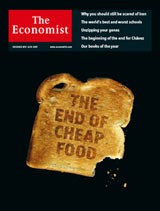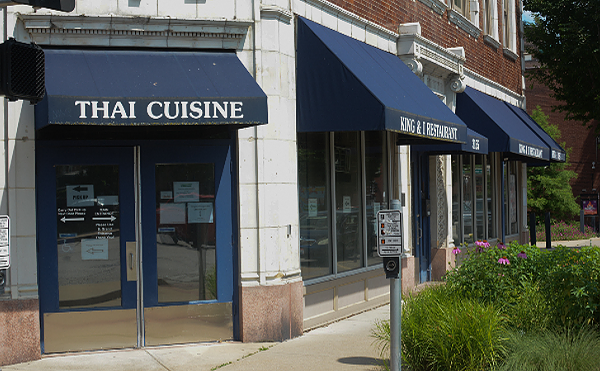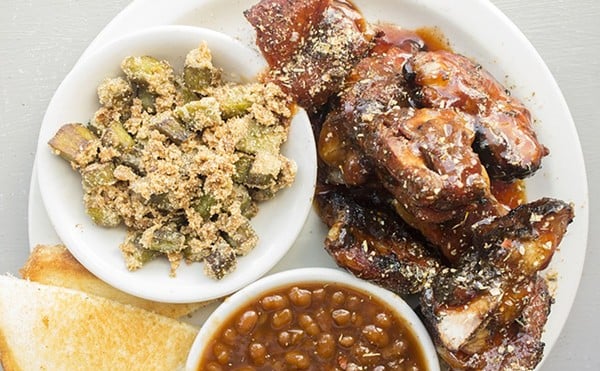The current issue of the Economist has a lengthy article on the global rise in food prices. It's well worth your time.
Though the article ranges over a number of topics related to food costs, I'd like to focus on one particular issue: The cause. In today's Morning Brew, I noted a new study that seems to lessen the blame on corn farmers for the cost increases. The Economist sees it differently. In fact, ethanol is one of two main causes of higher food costs. The other is rising incomes in the developing world, especially China and India.
Higher incomes in India and China have made hundreds of millions of people rich enough to afford meat and other foods. In 1985 the average Chinese consumer ate 20kg (44lb) of meat a year; now he eats more than 50kg. China's appetite for meat may be nearing satiation, but other countries are following behind: in developing countries as a whole, consumption of cereals has been flat since 1980, but demand for meat has doubled.
As for ethanol, the staistics are -- as always -- mind-boggling.
In 2000 around 15m tonnes of America's maize [corn] crop was turned into ethanol; this year the quantity is likely to be around 85m tonnes. America is easily the world's largest maize exporter--and it now uses more of its maize crop for ethanol than it sells abroad....Ethanol accounts for some of the rise in the prices of other crops and foods too. Partly this is because maize is fed to animals, which are now more expensive to rear. Partly it is because America's farmers, eager to take advantage of the biofuels bonanza, went all out to produce maize this year, planting it on land previously devoted to wheat and soyabeans. This year America's maize harvest will be a jaw-dropping 335m tonnes, beating last year's by more than a quarter. The increase has been achieved partly at the expense of other food crops.
The rest of the article discusses how governments are reacting to increased food costs, who wins and loses when food prices increase and how much higher food prices will rise:
Because supplies will not match increases in demand, [the International Food Policy Research Institute] believes, cereal prices will rise by between 10% and 20% by 2015. The UN's Food and Agriculture Organisation's forecast for 2016-17 is slightly higher.
I'm no expert at economics. Far from it, in fact. But I found the article illuminating and quite convincing.
This seems like a good time to remind you you're running out of time to see King Corn at the Tivoli. Here's my review.






